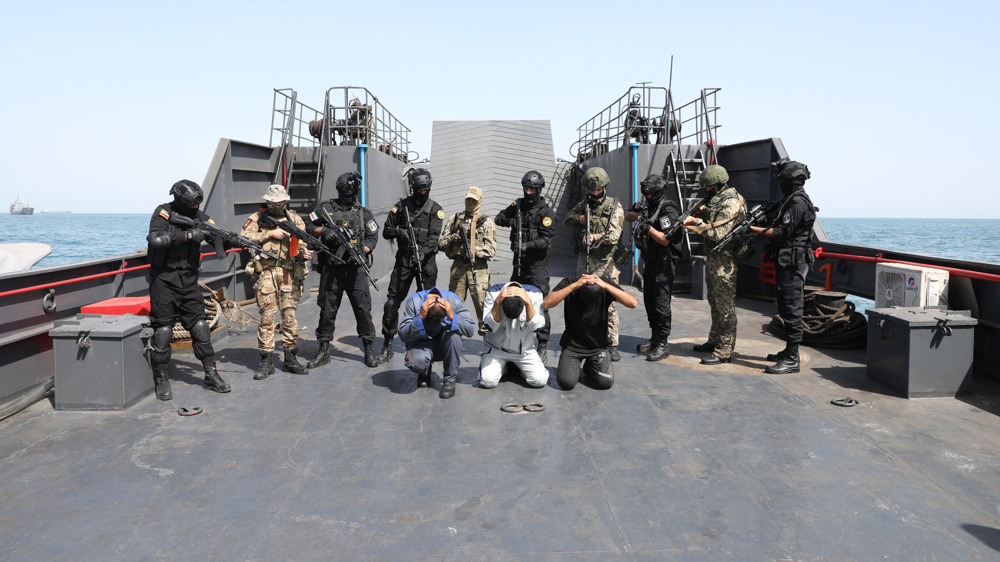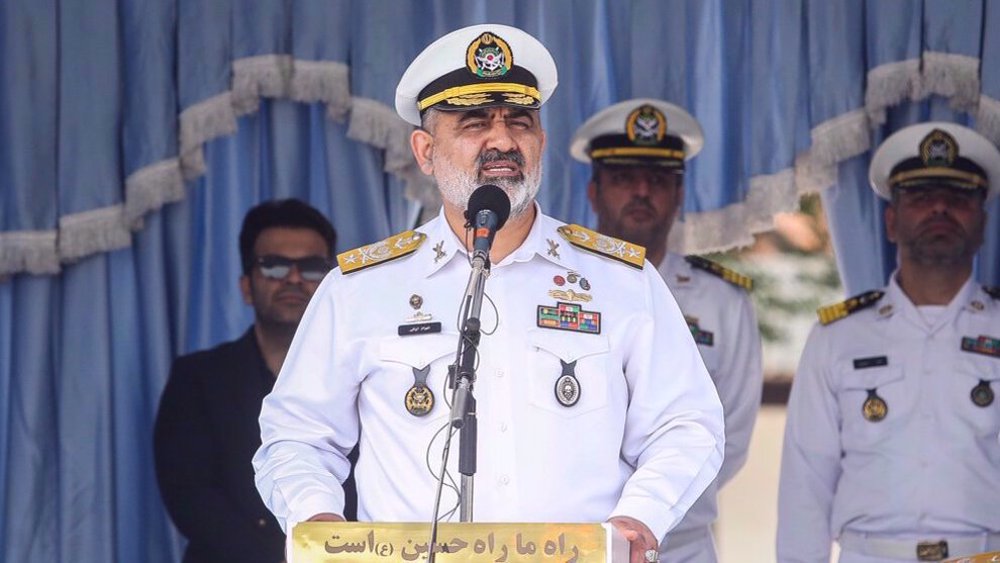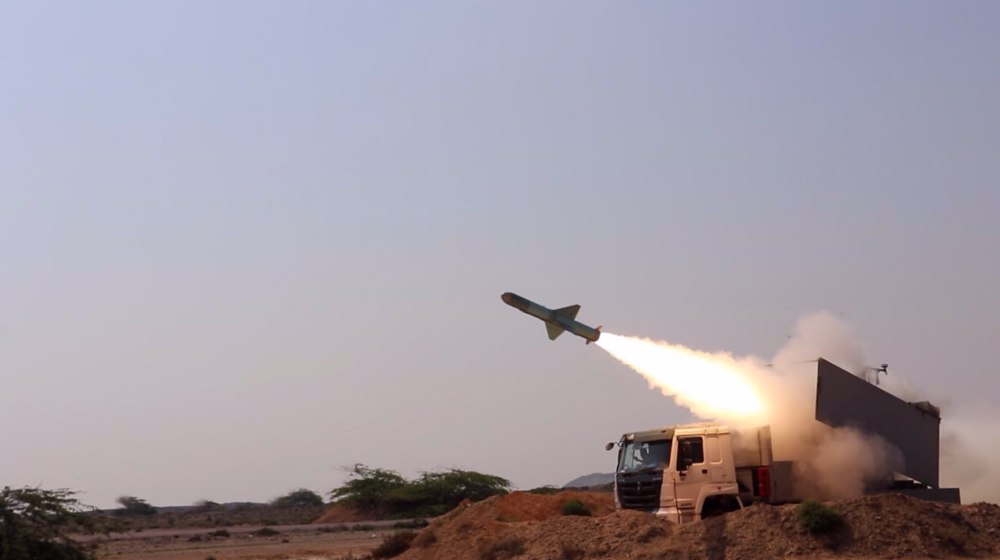Iran shows strong hand with strike + impact video
Top military officials say missiles fired from Iran at Daesh command centers in Syria's Dayr al-Zawr have found their targets with maximum accuracy.
The Islamic Revolution Guards Corps (IRGC) fired six medium-range missiles which "pounded" the Takfiri group's command headquarters as well as arms and ammunition centers Sunday night, IRGC spokesman Ramezan Sharif said on Monday.
"According to reliable information, the missile operation against Daesh has been successful," he said. The attack, he said, was "only a fraction of Iran's punitive power against terrorists and other enemies."
Amir Ali Hajizadeh, commander of the IRGC's Aerospace Force, said the missiles were fired from the Iranian provinces of Kermanshah and Kurdistan and flew over Iraq before landing in Syria.
"The UAVs which had been flown from around Damascus to Dayr al-Zawr transmitted the moments of impact to us in Iran," he said, adding "the missiles precisely hit their targets."

According to Fars news agency, which is close to the IRGC, preliminary evidence showed a large number of terrorists had been killed and their weapons destroyed.
The IRGC said the attack, the first of its kind in Iran, was in response to a terrorist operation which claimed the lives of 18 Iranians in Tehran earlier this month.
"Our enemies must know that Tehran is not London and Paris. This was a small job and if they put another foot wrong, more deadly blows will come down on their heads," Hajizadeh said.
Read more:

Expert examinations of the footage broadcast on state television of the attack identified at least one of the projectiles as the Zolfaqar missile. Among Iran's medium-range missiles, Shahab 2 and Qiam can fly as far as 700 and 800 kilometers respectively.


Zolfaqar is a solid-fueled medium-range ballistic missile (SRBM) that can reach 700 to 750 kilometers and is accurate within 5 to 10 meters. It is Iran’s latest variant of the Fateh-110 missile series — a family of solid-fueled SRBMs that Tehran has refined since the 1990s.
The projectile uses a multiple reentry vehicle payload, featuring a cluster warhead that can shower an area with sub-munitions. That explains why the missile was used against multiple targets in Sunday's attack, including Daesh's command center, gathering points and ammunition depots.
Other features include the missile's radar-evading and anti-jamming properties and operation with mobile and self-propelled light tactical launchers.
"Identifying terrorist bases and possessing intelligence command in this regard is a world of issues. Firing missiles from a 600-700 km range and landing it over a small building carries a message, meaning they would realize where Iran's fineness is," Hajizadeh said.
Couched as Iran's response to Daesh's June 7 attack on the parliament and the mausoleum of the founder of the Islamic Republic Imam Khomeini, the rare blitz is seen as conveying far-reaching messages for other players in the Syria conflict.
It came on the same day the US military admitted to having shot down a Syrian jet over Raqqah. Last month, US aircraft bombed a convoy of Syrian tanks after they advanced in an area near the Iraqi and Jordanian border in the wake of Daesh retreats.
“This was just the beginning of revenge on Daesh. A bigger slap is on the way. The supporters of terrorism too should pay heed to the message of Iran’s authority,” former IRGC chief Mohsen Rezaei wrote on his Twitter account.
MP Hossein Naqavi-Hosseini said the IRGC had "disturbed the enemies' sleep in any part of the world," adding the attack was just a slap.
Special adviser to Iran's parliament speaker, Hossein Amir-Abdollahian, described it as "a soft warning,” while Iran’s Ambassador to London Hamid Baeedinejad said the strike “manifested the will and capacity of Iran to fight against terrorism and security threats.”
Iran elected vice-chair of UN Special Committee on Charter
Iran envoy says decision made to exchange ambassadors with Egypt
Russia continues to develop relations with Iran: Kremlin
VIDEO | Friends of Palestine meet at UN in Vienna
Trump’s war-mongering on Iran sparks sharp rebuke from US lawmakers
Top American columnist warns of Netanyahu exploiting Trump for Iran war
VIDEO | Press TV's news headlines
VIDEO | Global leaders discuss AI governance at India summit












 This makes it easy to access the Press TV website
This makes it easy to access the Press TV website